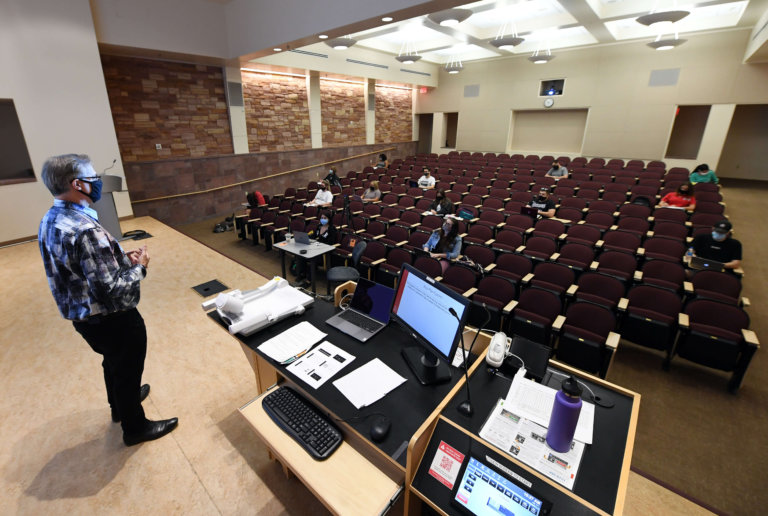
The UK government announced 50 million pounds in hardship funding for students on Tuesday, Feb. 2, 2021, aimed at softening the economic toll caused by the coronavirus pandemic. The funding will be distributed by the Office for Students, directly to universities as they are “best placed” to assess individual hardship cases effectively. This initiative will add to the 20 million pounds made available last December to help relieve the burden of both international and local students enroled in UK universities. “This continues to be an incredibly difficult and challenging time for our students, and I am hugely grateful to all the university staff working hard to prioritise their health, wellbeing and learning during this pandemic,” said universities minister Michelle Donelan. “The additional 50 million pounds that we are announcing today will mean we have distributed 70 million for hardship in this financial year alone — on top of the 256 million pounds of government-funded student premium which universities can use for student support this academic year,” she added.
As the pandemic disrupted UK universities throughout 2020 with lockdowns and campuses turning into virus hotspots, students struggled with challenges such as additional costs in accommodation, difficulties accessing online learning due to lack of resources and losing jobs. Some international students in London have even resorted to food banks and living with multiple people in single rooms to get by.

Lecturer Ian Bowden teaches law students at the University of Bolton, in Bolton, northern England. Source: Oli Scarff / AFP
As UK universities shifted to online lessons, many were campaigning for rent rebates, term-time accommodation and tuition fee refunds. As a result, a number of universities and accommodation providers have stepped up saying they will not charge rent to students who cannot enter university halls. “We welcome the flexibility that landlords have been able to show to help their student tenants in some way. However, we recognise that this may not be possible for some smaller private providers,” the Department of Education said.
Affected students are urged to contact their higher education providers for updates while the government continues to monitor the impact of the funding. Many are pleased with the relief, however, there is still much to be done. The additional funding was a “positive step”, according to Alistair Jarvis, chief executive of Universities UK (UUK), but as the “serious mental health impact of the pandemic” continues, more funding is needed to support university wellbeing and support services. “Although university staff are making huge efforts to offer high-quality online learning, the government should provide support that recognises that students are missing out on the wider student experience that they would benefit from in a normal year,” Jarvis said.
Chief executive of Independent HE — a national representative body for independent providers of higher education, professional training and pathways — Alex Proudfoot noted that the funds will not cover all students in the UK. It’s extremely rare for a university to extend any of its hardship funds to partner institutions, such as pathway colleges, IHE highlighted. In a letter to Prime Minister Boris Johnson, Chancellor Rishi Sunak and Education Secretary Gavin Williamson, the vice-chancellors say students are paying a heavy price in the Covid-19 pandemic. “The opportunity and wealth gap between the young and old is already unacceptably large — and existing challenges are being amplified by the impact of the pandemic on students and their life chances,” the letter says. It adds that the pandemic has placed “unprecedented pressures on our students,” with demands for hardship funds increasing by over 100% in some universities.
The letter is signed by seven vice-chancellors: Professor Anthony Forster from the University of Essex, Professor Frances Corner from Goldsmiths, University of London, Professor Karen Cox from the University of Kent, Professor Paul Layzell from Royal Holloway, University of London, Professor David Richardson from the University of East Anglia, Professor Adam Tickell from the University of Sussex and Professor Robert Van de Noort from the University of Reading. They are calling for a reduction equivalent to waiving the interest rate on student loans for 15 months, starting from the first national lockdown implemented last March until the end of this academic year.










